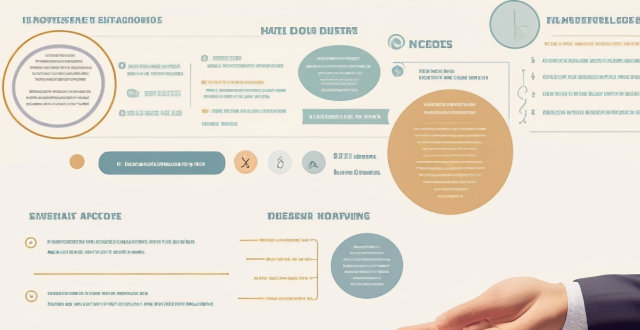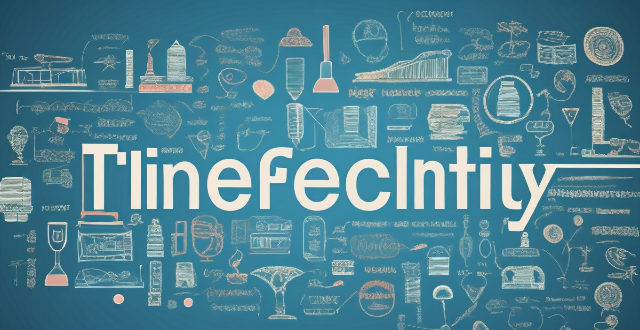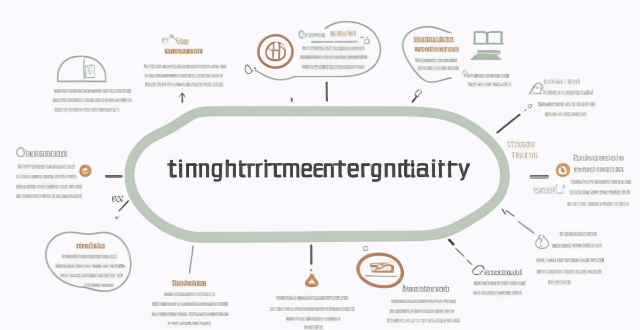Coach Time

Is it necessary to hire a personal coach to improve sports skills ?
Improving sports skills is a common goal for many athletes, from amateur enthusiasts to professional competitors. One question that often arises is whether it is necessary to hire a personal coach to achieve this objective. In this response, we will explore the advantages and disadvantages of hiring a personal coach and provide some recommendations based on individual needs and circumstances. Advantages of Hiring a Personal Coach: Expertise and Experience: A personal coach brings expertise and experience to the table. They have spent years honing their craft and learning the intricacies of their sport. This knowledge can be invaluable when it comes to improving an athlete's technique, form, and overall performance. Customized Training Plans: Personal coaches create customized training plans tailored to each athlete's specific needs, goals, and abilities. This personalized approach ensures that the athlete is receiving the most effective and efficient training possible, which can lead to faster progress and better results. Accountability and Motivation: Having a personal coach provides a sense of accountability and motivation. The coach serves as a mentor and cheerleader, pushing the athlete to reach their full potential while also providing support and encouragement along the way. Injury Prevention and Recovery: Personal coaches are trained in injury prevention and recovery techniques. They can help athletes identify potential risk factors and develop strategies to minimize the likelihood of injuries occurring. Additionally, they can guide athletes through proper recovery protocols after workouts or competitions. Disadvantages of Hiring a Personal Coach: Cost: Hiring a personal coach can be expensive, particularly for top-level coaches with extensive experience and credentials. This cost may not be feasible for all athletes or may require significant financial investment over time. Availability and Accessibility: Personal coaches may not always be available at convenient times or locations for the athlete. This can make it difficult to maintain consistent training schedules or receive timely feedback and guidance. Compatibility Issues: Not all athletes will click with their personal coach, leading to compatibility issues that can hinder progress and enjoyment of the sport. It is important to find a coach who understands the athlete's goals, personality, and learning style. Recommendations Based on Individual Needs and Circumstances: Assess Your Goals and Level of Commitment: Before deciding whether to hire a personal coach, assess your goals and level of commitment to your sport. If you are serious about improving your skills and achieving specific milestones, investing in a personal coach may be worth considering. However, if you are primarily focused on recreational activities or occasional competitions, self-directed training may be sufficient. Consider Your Budget and Resources: Evaluate your budget and resources to determine if hiring a personal coach is financially viable for you. There may be alternative options such as group coaching sessions, online coaching programs, or working with less experienced coaches that offer similar benefits at a lower cost. Research Potential Coaches Carefully: If you decide to pursue hiring a personal coach, research potential candidates carefully. Look for coaches with relevant qualifications, experience working with athletes at your level, and positive reviews from previous clients. Schedule initial consultations to gauge compatibility and discuss your goals and expectations. In conclusion, hiring a personal coach can be beneficial for athletes looking to improve their sports skills by providing expertise, customized training plans, accountability, motivation, injury prevention, and recovery support. However, it is essential to consider individual needs, goals, budget, and resources before making this decision. By carefully evaluating these factors and researching potential coaches, athletes can make informed decisions about whether hiring a personal coach is necessary for them.

Can I get a personal coach at a tennis training camp ?
Tennis training camps offer various services, including group lessons, individual lessons, and personalized coaching. Having a personal coach at a tennis training camp can provide you with many benefits, such as personalized attention, customized training plans, accelerated learning, and motivation. To find a suitable coach, research the camp, contact them directly, ask for recommendations, schedule a meeting, and consider the cost. With the right coach, you can take your game to the next level and achieve your tennis goals.

How important is a golf coach in learning the sport ?
**The Importance of a Golf Coach in Learning the Sport** Learning golf, like any sport, requires dedication, practice, and guidance. One of the most crucial aspects of learning golf is having a good coach. A golf coach plays a significant role in shaping a player's skills, understanding of the game, and overall development. In this response, we will explore the importance of a golf coach in learning the sport. ### **1. Providing Expertise and Knowledge** A golf coach brings years of experience and knowledge to the table. They have a deep understanding of the mechanics of the game, including swing techniques, club selection, and course management. This expertise allows them to provide personalized instruction tailored to each player's needs, helping them improve their skills faster and more efficiently. #### **Key Points:** - Understanding swing mechanics - Club selection advice - Course management strategies ### **2. Identifying and Correcting Mistakes** One of the biggest challenges for beginners is identifying and correcting mistakes in their technique or approach. A golf coach can quickly spot these errors and provide targeted feedback and corrections. This not only helps players avoid developing bad habits but also speeds up their learning process. #### **Key Points:** - Identifying technical flaws - Providing targeted feedback - Preventing the development of bad habits ### **3. Motivation and Accountability** Learning any sport can be frustrating at times, and golf is no exception. A golf coach serves as a source of motivation, pushing players to reach their potential and overcome obstacles. Additionally, having someone to be accountable to can increase a player's commitment to their practice routine and overall improvement. #### **Key Points:** - Providing motivation during challenging times - Encouraging perseverance and resilience - Holding players accountable for their progress ### **4. Customized Training Plans** Every golfer has different strengths, weaknesses, and goals. A golf coach can create customized training plans that cater to each individual's needs, ensuring they focus on areas that need improvement while reinforcing their strengths. This personalized approach leads to more effective training sessions and better overall results. #### **Key Points:** - Tailored training plans based on individual needs - Focusing on areas for improvement - Reinforcing strengths for optimal performance ### **5. Access to Resources and Networking Opportunities** Golf coaches often have access to resources such as training facilities, equipment, and networking opportunities within the golf community. These resources can be invaluable for players looking to take their game to the next level. From connecting with other professionals to gaining access to advanced training tools, a coach's network can significantly impact a player's development. #### **Key Points:** - Access to quality training facilities and equipment - Networking opportunities within the golf community - Connections with other professionals for mentorship and guidance In conclusion, having a golf coach is essential for anyone looking to learn and excel in the sport of golf. From providing expert knowledge and personalized instruction to offering motivation and access to valuable resources, a golf coach plays a critical role in a player's journey towards mastering the game.

What are the key skills required to become a successful sports coach ?
To become a successful sports coach, one needs to possess strong communication skills, leadership abilities, tactical and strategic thinking, knowledge of sport and fitness training, patience and empathy, motivation and influence, organizational skills, and commitment to continuous learning. These skills help coaches communicate effectively with their athletes, manage team dynamics, strategize game plans, create effective workout routines, build an inclusive environment, motivate athletes towards success, and stay updated with the latest advancements in sports science. By developing these key skills, coaches can inspire their teams to reach new heights and enjoy success in their respective sports.

Is it necessary to hire a professional coach to create an effective sports training program ?
The text discusses the necessity of hiring a professional coach for creating an effective sports training program. It outlines the advantages of having a coach, including personalized plans, expertise, motivation, and injury prevention. The article also suggests that hiring a coach is not always necessary but can be beneficial in certain situations, such as for beginners or highly competitive athletes. Ultimately, the decision to hire a coach depends on individual needs and goals.

What are some common challenges faced by new sports coaches ?
Becoming a new sports coach can be an exciting and rewarding experience, but it also comes with its own set of challenges. Here are some common challenges faced by new sports coaches: 1. Establishing Authority and Respect: Gaining the respect and trust of your athletes is crucial to your success as a new coach. This can be challenging, especially if you are young or inexperienced. You may need to work harder to establish your authority and earn the respect of your team. 2. Developing Effective Communication Skills: Effective communication is key to being a successful coach. As a new coach, you may struggle to communicate effectively with your athletes, parents, and other coaches. You will need to work on your ability to give clear instructions, provide feedback, and listen actively to your athletes' needs and concerns. 3. Building Team Chemistry: Building a strong team culture and chemistry takes time and effort. As a new coach, you may find it challenging to create a sense of unity and cohesion among your athletes. You will need to focus on building relationships, fostering a positive team environment, and promoting a culture of inclusivity and support. 4. Managing Time and Prioritizing Tasks: As a new coach, managing your time effectively can be a challenge. You will need to prioritize tasks such as game preparation, practice planning, player development, and administrative duties. Learning to delegate responsibilities and manage your time wisely is essential for success. 5. Dealing with Adversity: Coaching is not always smooth sailing. As a new coach, you may face adversity such as losing games, dealing with injuries, or handling conflicts within the team. It is important to develop resilience and learn how to handle difficult situations calmly and constructively. 6. Continuing Education and Development: As a new coach, there is always room for growth and improvement. You should strive to continue learning about coaching techniques, sports psychology, fitness training, and other relevant topics. Attending coaching clinics, workshops, and conferences can help you stay up-to-date with the latest trends and best practices in sports coaching.

How much do sports coaches earn on average ?
The article discusses the factors affecting sports coaches' salaries, including the level of competition, the sport, and the location. It also provides average salary ranges for professional, college, high school sports coaches, and personal trainers/fitness coaches. Finally, it suggests ways to increase earnings as a sports coach, such as gaining more experience, specializing in a niche area, or starting your own business.

What are the best sports careers for someone who loves competition ?
Competitive individuals have various sports career options, including professional athlete, coach/manager, sports analyst/journalist, referee/umpire, personal trainer/fitness instructor, sports agent/manager, and event planner/promoter. Each path offers unique opportunities to thrive on competition and excel in the sporting world.

What are some of the most memorable moments in sports movies ?
Sports movies often showcase the triumphs and struggles of athletes, capturing our hearts and inspiring us to be our best selves. Here are some of the most memorable moments in sports movies: 1. The Miracle on Ice (Miracle, 2004) - Herb Brooks coaching the 1980 U.S. men's Olympic hockey team to victory over the Soviet Union during the Cold War. 2. Rocky Balboa's Victory (Rocky, 1976) - Sylvester Stallone stars as an underdog boxer who gets a chance to fight for the world heavyweight championship. 3. The Blind Side (The Blind Side, 2009) - Sandra Bullock stars as Leigh Anne Tuohy, who adopts Michael Oher, a homeless teenager with a troubled past, and helps him become a successful football player. 4. Remember the Titans (Remember the Titans, 2000) - Denzel Washington stars as Herman Boone, an African American coach tasked with integrating a newly formed high school football team in Virginia during the civil rights era. 5. Hoosiers (Hoosiers, 1986) - Gene Hackman stars as Norman Dale, a basketball coach who takes on the challenge of leading a small-town Indiana high school team to victory in the state championship.

What is the difference between a personal trainer and a sports coach ?
This article compares and contrasts the professions of personal trainers and sports coaches, highlighting their similarities and differences in terms of clientele, goals, training programs, feedback and guidance, and areas of specialization. Personal trainers work with individuals to improve their overall health and fitness levels, while sports coaches work with athletes or teams to improve their performance in a specific sport. The article provides a comprehensive overview of the key differences between these two professions, helping readers understand the unique roles and responsibilities of each.

What are some of the best sports movies of all time ?
The text enlists some of the best sports movies of all time, including "Rocky", "Hoosiers", "Remember the Titans", "Miracle", and "The Blind Side". These films not only provide entertainment but also serve as inspirational tales that resonate with audiences worldwide by highlighting the human spirit, perseverance, teamwork, and the thrill and excitement of the game.

How can a coach improve their leadership skills in sports ?
To improve their leadership skills in sports, coaches should develop emotional intelligence, build trust and respect with athletes, set clear goals and expectations, provide constructive feedback, encourage teamwork and collaboration, and continuously learn and grow. These strategies can help coaches guide their teams towards success by fostering a positive team culture, motivating athletes, and promoting effective communication and collaboration within the team.

How do celebrities spend their leisure time ?
Celebrities enjoy leisure activities such as traveling, pursuing hobbies, spending time with family and friends, and engaging in philanthropy. They explore new cultures, take luxury vacations, participate in humanitarian trips, practice artistic pursuits, stay fit through sports, prioritize family gatherings and friendships, and give back to society through fundraising events and advocacy work.

Is it better to pay off student loans quickly or over time ?
When it comes to paying off student loans, there are two main strategies: paying them off quickly or spreading out the payments over time. Both approaches have their advantages and disadvantages, and the best choice depends on your individual financial situation and goals. In this article, we will explore the pros and cons of each strategy to help you make an informed decision.

How can families make time for both sports and quality family time ?
In today's fast-paced world, finding a balance between work, personal interests, and family time can be challenging. For families with members who are passionate about sports, integrating quality family time and sports activities requires careful planning and a commitment to making the most of every moment together. Here's how families can make time for both sports and quality family time: ### **Prioritize and Plan** #### _Set Clear Priorities_ - Discuss as a family what each member values most in terms of sports and family time. - Agree on a set of priorities that everyone can commit to. #### _Create a Shared Calendar_ - Use a family calendar to schedule sports practices, games, and family activities. - Make sure everyone has access to the calendar and updates it regularly. ### **Integrate Sports into Family Time** #### _Attend Sports Events Together_ - Make attending sports games or practices a family outing. - Cheer on the athlete together, making it a shared experience. #### _Play Sports as a Family_ - Engage in sports activities that everyone enjoys, such as bike rides, hikes, or backyard games. - Encourage non-athletic family members to participate in ways that suit their interests and abilities. ### **Quality Over Quantity** #### _Make Every Moment Count_ - Even short periods of time can be meaningful if everyone is fully engaged. - Turn off distractions like phones and TVs to focus on each other. #### _Regular Family Meetings_ - Hold regular family meetings to discuss schedules, concerns, and plans. - Use this time to reinforce the importance of both sports and family time. ### **Flexibility and Adaptability** #### _Be Open to Change_ - Recognize that unforeseen events may require adjustments to plans. - Maintain a flexible attitude to accommodate changes without stress. #### _Communicate Openly_ - Encourage open communication about feelings and scheduling conflicts. - Address any issues promptly to avoid resentment or burnout. ### **Support and Encouragement** #### _Encourage Each Other_ - Support family members in their sports endeavors and recognize their efforts. - Acknowledge the sacrifices made by non-participating family members. #### _Celebrate Achievements Together_ - Celebrate sports achievements as a family, no matter how big or small. - Create traditions around these celebrations to strengthen family bonds. ### **Conclusion** By prioritizing, planning, integrating sports into family time, focusing on quality interactions, being flexible, and providing support, families can successfully make time for both sports and quality family time. It's all about finding the right balance that works for your unique family dynamics and embracing the enriching experiences that both realms offer.

How long does it typically take to complete a sports coaching training program ?
Aspiring sports coaches often wonder about the duration of a sports coaching training program. The time it takes to complete such a program varies based on factors like the level of coaching, sport specificity, accreditation requirements, study schedule, and personal commitments. Basic courses can range from days to weeks, intermediate programs from months to a year, and advanced diplomas or degrees may take two to four years. The journey to becoming a sports coach offers flexibility but requires significant dedication. Coaches should consider their objectives and resources when selecting a program that aligns with their desired timeline and career goals.

What are some tips for managing my time effectively while studying ?
Managing time effectively is crucial for academic success. Create a study schedule by identifying goals, prioritizing tasks, and allocating time. Eliminate distractions by turning off notifications, finding a quiet place, and using focus techniques. Take regular breaks, engage in physical activity, and avoid multitasking. Use tools like time management apps, study groups, and online resources. Stay motivated by setting achievable goals, celebrating accomplishments, and seeking support.

Are there any scholarships available for part-time students ?
Part-time students face unique challenges when it comes to financing their education, but there are still scholarships available for them. Need-based scholarships are awarded based on financial need, while merit-based scholarships are awarded based on academic achievement or other criteria. Employer tuition assistance programs may also be an option for part-time students. Tips for applying for scholarships as a part-time student include starting early, being prepared, and following instructions carefully.

How can I prioritize tasks effectively to manage my time better ?
Effective time management involves prioritizing tasks to improve productivity and reduce stress. The process begins with identifying goals, followed by using the Eisenhower Matrix to categorize tasks based on urgency and importance. Breaking down large tasks, maintaining a to-do list, and setting realistic deadlines also aid in efficient task prioritization. These strategies help manage time effectively and achieve success in personal and professional life.

What are some time-saving tips for preparing home-cooked meals ?
Time-saving tips for preparing home-cooked meals include planning meals in advance, using a slow cooker or pressure cooker, prepping ingredients ahead of time, cooking once and eating twice, using convenience foods wisely, cleaning as you go, and simplifying your menu. These strategies can help save time and reduce stress during meal prep while still allowing you to enjoy delicious homemade dishes.

What are some effective time management techniques for students ?
Effective time management techniques for students include prioritizing tasks, setting goals, creating a schedule, utilizing time management tools, minimizing distractions, and taking breaks. These strategies help students focus on important tasks, allocate time efficiently, avoid procrastination, and maintain a healthy work-life balance.

How often do you run limited-time promotions ?
Running limited-time promotions can be an effective strategy for businesses to increase sales, acquire new customers, and manage inventory. The frequency of these promotions depends on various factors such as business goals, target audience, and product/service offerings. Limited-time promotions offer benefits such as increased sales through urgency and discounts, customer acquisition by attracting new customers and rewarding loyalty, and inventory management by clearing excess inventory and promoting seasonal products. Best practices for limited-time promotions include planning and timing, marketing and promotion, and tracking and analysis. By following these practices, businesses can maximize the benefits of limited-time promotions and achieve their desired outcomes.

Can speed reading help me save time when studying for exams ?
Speed reading can save time when studying for exams by increasing efficiency, improving recall, managing time better, and reducing stress. However, it may compromise comprehension, not be suitable for all text types, require skill development time, and lead to overconfidence. To effectively use speed reading, start early, combine techniques, take breaks, test comprehension, and customize your approach.

How do different coaching styles impact the development of high-level athletes ?
This text discusses the impact of coaching styles on high-level athlete development. It highlights different coaching styles such as autocratic, democratic, visionary, servant leadership, and transformational, discussing their advantages and disadvantages in the context of athlete development. The text emphasizes that effective coaching approaches often depend on the specific needs of athletes and team goals. Coaches should consider adapting their style based on feedback from their athletes to ensure continuous improvement and success.

What are some common mistakes people make in time management ?
Effective time management is crucial for productivity, yetEffective time management is crucial for productivity, yet leading to stress and ineff underestimating task time, multitasking, poor planning, not saying 'no', failing to take breaks, perfectionism, disorganization, and ignoring tools and techniques designed to improve time management. Recognizing these mistakes can help individuals improve their time management skills, leading to increased productivity, reduced stress, and better overall well-being.

How can I organize my cleaning routine to save time ?
The text provides tips on how to organize your cleaning routine to save time. It suggests creating a cleaning schedule with daily, weekly, and monthly tasks; using multi-tasking products; decluttering regularly; involving family members in the process; and using technology to streamline the routine. By following these tips, you can plan, prioritize, and stay consistent with your cleaning schedule to save time.